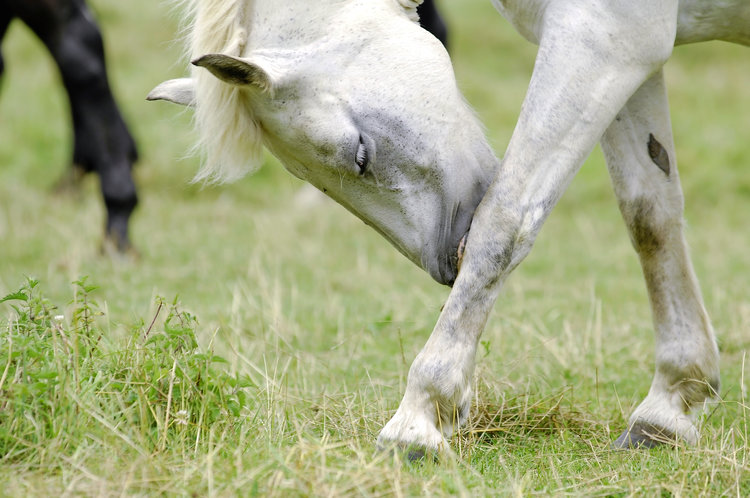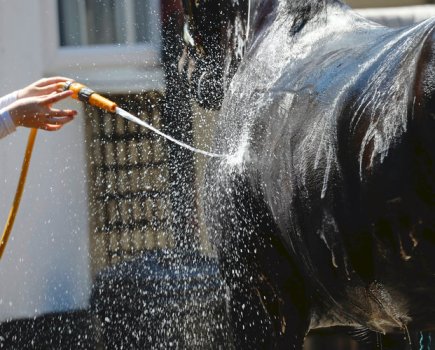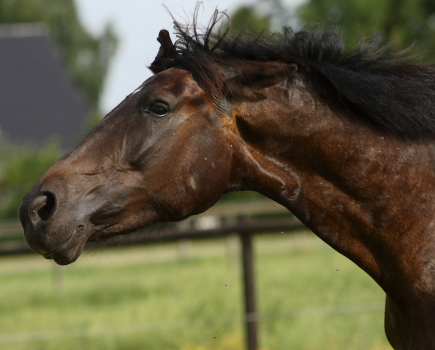Allergic reactions in horses can be caused by a wide range of things such as food, pollen, dust, insect bites, moulds, grass, trees, injections and grooming products, such as shampoos.
Response to allergen exposure can vary massively from a localised skin swelling to hives. In more severe cases exposure can lead to anaphylactic reactions and death.
We find out more about the different types of allergies and their treatments.
Vaccine allergies
This is often quite obvious – if your horse has just received his flu or tetanus jab and develops heat and swelling at the site of the injection, it’s clear that he’s had an allergic reaction.
These normally disappear within a few days, and don’t require treatment.
It is worth noting on his medical record so that a different brand of the vaccine can be used instead.
Skin allergies
These are the most common allergic reactions in horses, and can be triggered by a wide variety of things so it is sometimes difficult to pin-point exactly what has caused an allergic response.
A frequent cause of skin hypersensitivity in horses is insect bites, often from midges.
Commonly known as sweet itch, this hypersensitivity is usually seasonal and affects specific areas of the body, including the mane and tail, centre of the tummy, face, ears and legs.
Allergic respiratory disease
Recurrent airway obstruction (RAO), also known as heaves, occurs when a horse is allergic to environmental allergens. It most commonly occurs during the winter in horses that are allergic to dust.
Poor quality, dusty hay or bedding can result in an allergic reaction, as can being stabled close to the muck heap or being kept in a stable or barn with poor ventilation.
The most important part of RAO treatment is modification of your horse’s environment. Try to keep him turned out as much as possible.
Food allergies
While previously thought to be rare in horses, recent research has found they are actually quite common.
Diagnosis of food allergies can be difficult, often it involves removing a food type from your horse’s environment and assessing his subsequent response. However, it’s often difficult to know if the food has been fully removed.
Anaphylactic shock
This is the most severe type of allergic reaction, and usually happens very suddenly. The horse’s blood pressure drops dramatically and the respiratory system is compromised due to internal swelling.
In severe cases, the horse may collapse and die unless he is treated quickly with adrenaline-based drugs.
Don’t miss the latest issue of Your Horse Magazine, jam-packed with training and veterinary advice, horse-care tips and the latest equestrian products available on shop shelves, on sale now









